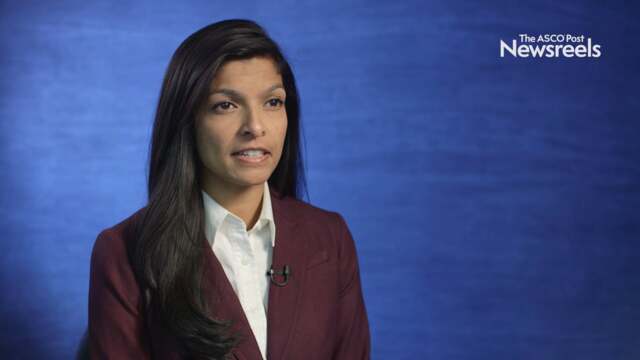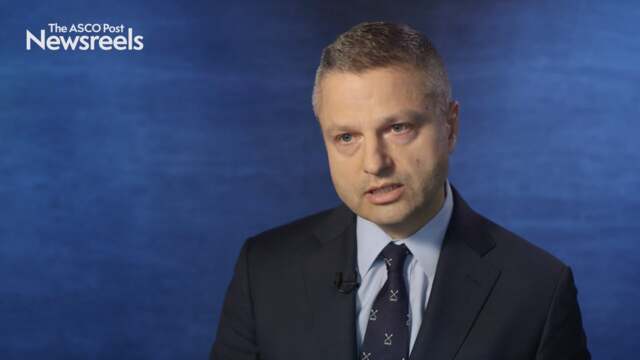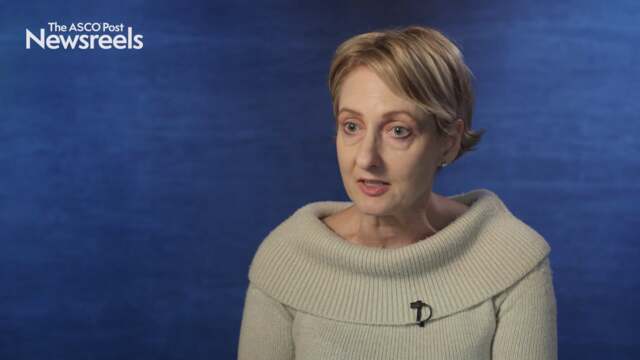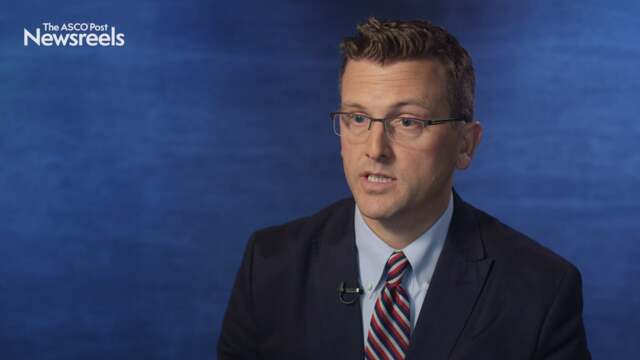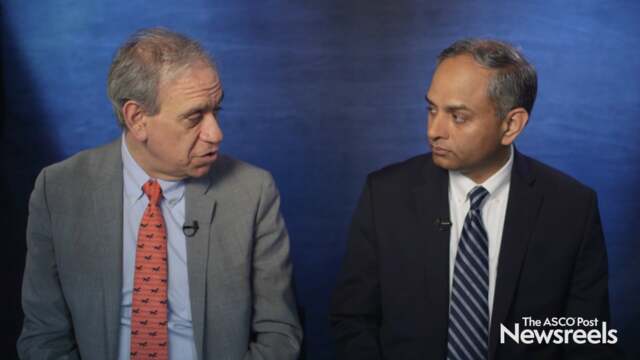Andrew M. Evens, DO, on Gray Zone Lymphoma: Results From a Multicenter Study
2017 ASH Annual Meeting
Andrew M. Evens, DO, of Tufts University, discusses findings on the effectiveness of DLBCL-based therapy for patients whose disease fell between diffuse large B-cell and classical Hodgkin lymphoma (Abstract 375).
Tanaya Shree, MD, PhD, of Stanford University Medical Center, discusses findings from a large population-based study suggesting lasting effects of lymphoma and its treatments: an increased incidence of autoimmune and infectious diseases (Abstract 198).
Jakub Svoboda, MD, of the Abramson Cancer Center, University of Pennsylvania, discusses some encouraging phase I/II results on brentuximab vedotin with R-CHP chemotherapy as front-line treatment of CD30-positive primary mediastinal large B-cell, diffuse large B-cell, and gray zone lymphomas (Abstract 191).
Laurie H. Sehn, MD, MPH, of the British Columbia Cancer Agency and University of British Columbia, discusses long-term results of PET-guided radiation therapy in patients with advanced-stage diffuse large B-cell lymphoma treated with R-CHOP (Abstract 823).
Mark J. Roschewski, MD, of the National Cancer Institute, discusses phase II study findings that showed DA-EPOCH-R cures most adult patients with Burkitt lymphoma, irrespective of HIV status (Abstract 188).
Andrew D. Zelenetz, MD, PhD, of Memorial Sloan Kettering Cancer Center, and Sattva S. Neelapu, MD, of The University of Texas MD Anderson Cancer Center, discuss long-term study findings on axicabtagene ciloleucel in patients with refractory aggressive non-Hodgkin lymphoma (Abstract 578).
